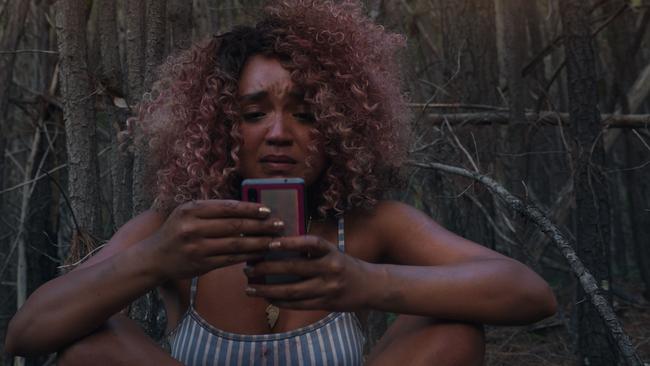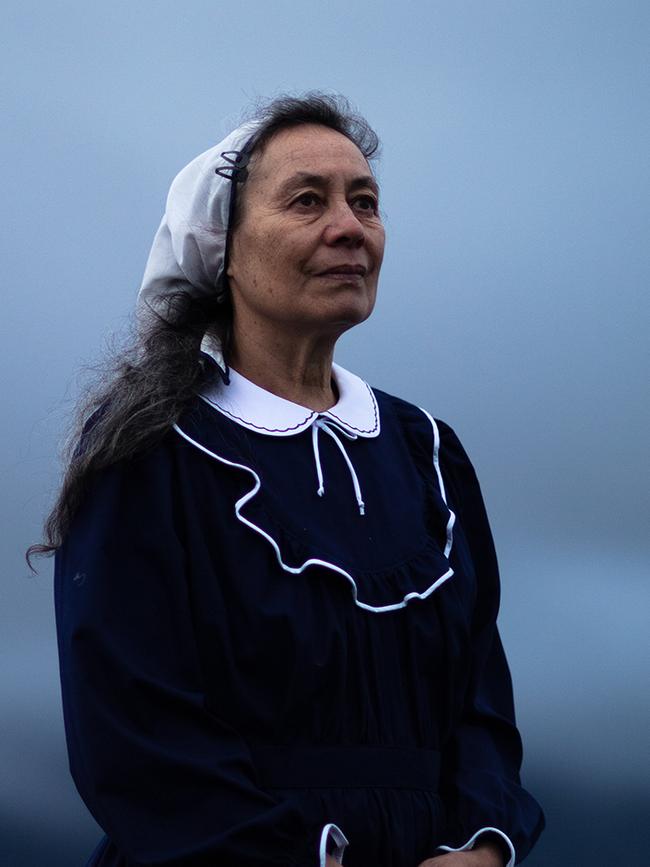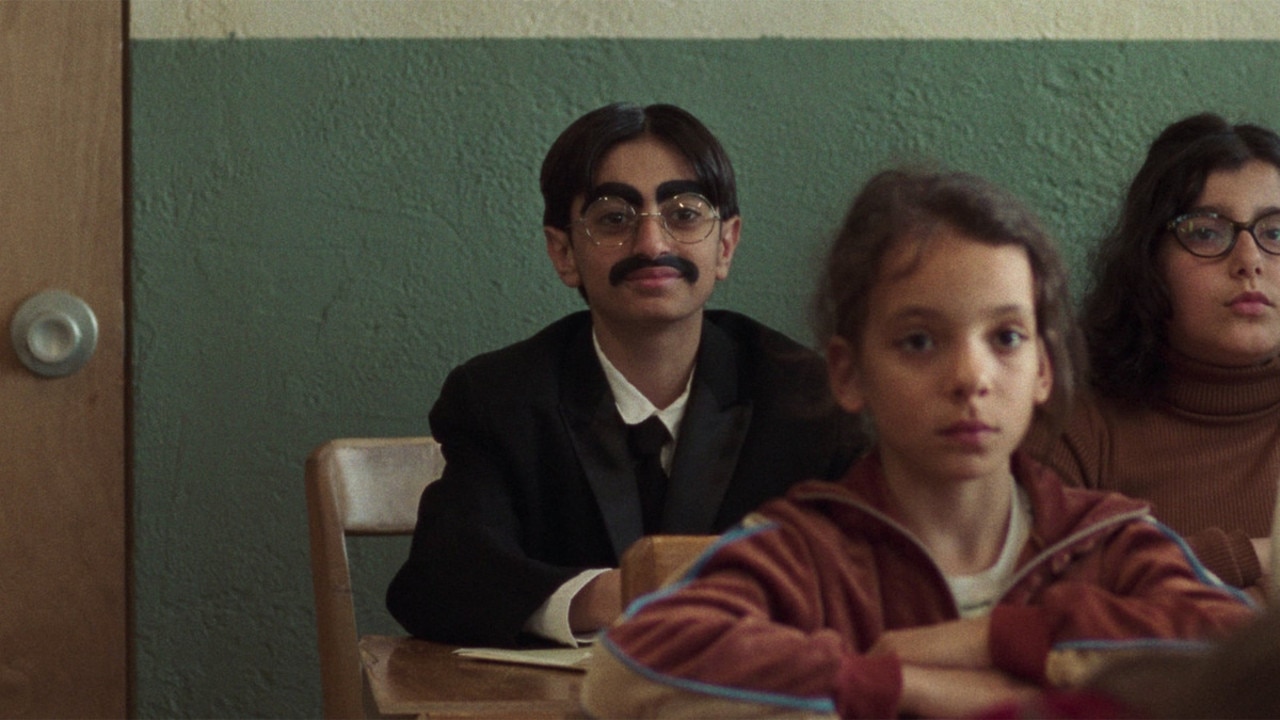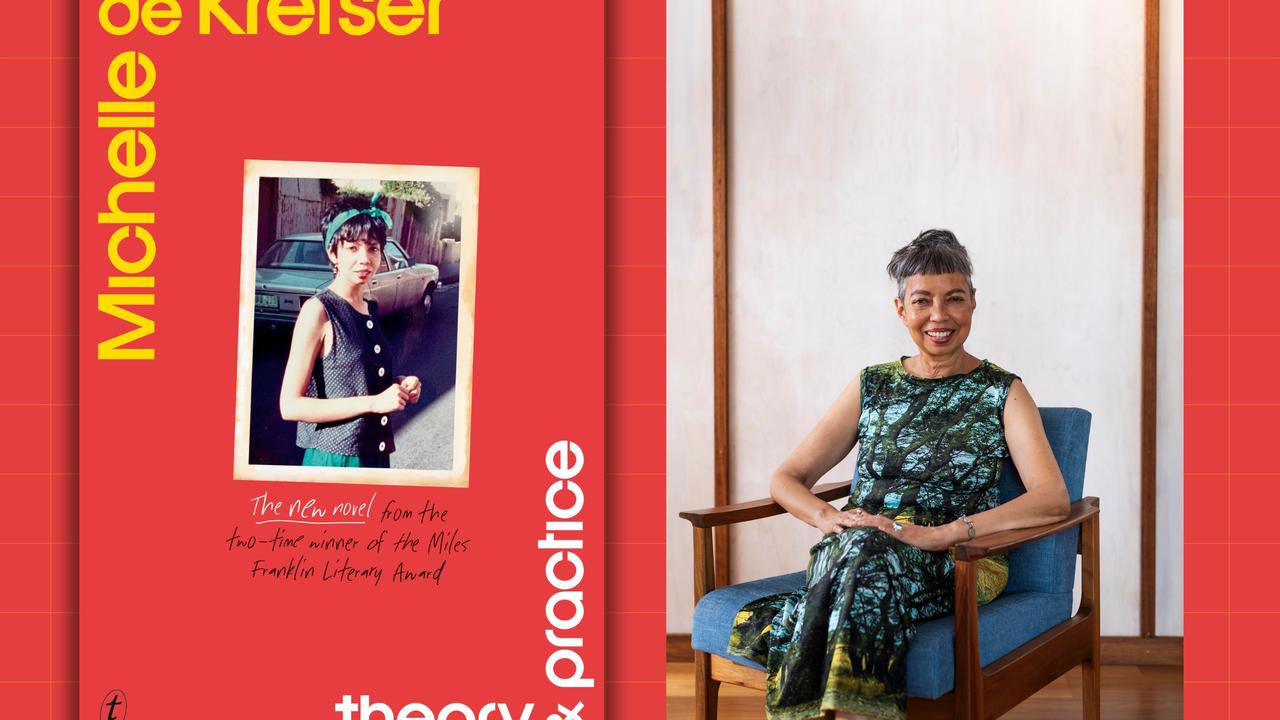Naughty hen’s night turns deadly in AACTA-nominated thriller Sissy
When the nominations for the 2022 Australian Academy of Cinema and Television Arts, Australia’s Oscars, were announced a few days ago one film seemed to materialise from nowhere: Sissy.

When the nominations for the 2022 Australian Academy of Cinema and Television Arts, Australia’s Oscars, were announced a few days ago one film seemed to materialise from nowhere: Sissy, an unheralded independent feature, scored nominations for Best Film, Best Direction (Hannah Barlow and Kane Senes) and Best Lead Actress (Aisha Dee).
Sissy is an uneven but mostly enjoyable Australian thriller and follows on from For Now (2017), a feature from the same directors/writers, which I haven’t seen. The new film has already attracted overseas attention as it successfully premiered at the SXSW film festival in Austin, Texas, earlier this year.
The unusual and not always entirely convincing narrative is essentially the old story of the worm that turns. In this case the “worm” is an attractive young woman named Cecilia (Dee) who, as a child, was nicknamed Sissy. Thirteen-year-old Sissy (Amelia Lule) was the best friend of Emma (Camille Cumpston); but children can be nasty to one another and Emma eventually abandoned Sissy to hang out with the obnoxious Alex (April Blasdall) who teased and tormented the dusky, curly haired Sissy until she attacked her enemy with a knife, leaving her with a facial scar.
Years later the adult Sissy, now calling herself Cecilia, has established herself as a mental health advocate and online guru, with a very large internet following but no real qualifications. By chance she encounters Emma (co-writer/co-director Barlow) in a pharmacy. Emma is pleased to see her and invites her to join her and some of her girlfriends for a hens’ get-together to celebrate her engagement to Fran (Lucy Barrett) at an isolated (of course) house in the country which happens to be owned by Alex (Emily De Margheriti). Alex, still very conscious of the facial scar for which Cecilia was responsible, makes no bones about the fact that she hates Cecilia, and the other guests – Tracey (Yerin Ha) and Jamie (Daniel Monks) – follow the lead of their hostess and are pretty nasty to her, too.
After an unsettling evening, the next day the women embark on a picnic in a picturesque spot by a creek – but a pleasant afternoon turns very dark, indeed, as past bitternesses and recriminations turn to violence.
As the body count rises, some of what follows is pretty graphic (notably a grisly moment in which a young woman’s head is crushed when run over by a car).
Sissy is a clever, knowing film that rings a few changes on the standard horror movie. It’s very well acted by the female cast, and handsomely produced. The one drawback is the overdone music score (by Kenneth Lampl) which tends to overwhelm the images it’s accompanying.
Whina (PG) ***1/2
Three and a half stars
In cinemas
Whina Cooper (1895-1994) was a Maori leader who, in 1975, at the age of 80, led a 1086 km march from Te Hapua in the north of New Zealand’s North Island to Parliament House in Wellington to claim, or to re-claim, land rights for her people.
This film tells her story in non-chronological order. When she was born her father, Herema (Wayne Hapi), a Chief, was disappointed that she wasn’t a boy, but she grew up with a strong sense of duty. During her childhood British police on horseback regularly raided and destroyed Maori encampments established on land owned by white settlers. By the time she was 23, played by Miriama McDowell, Whina was married to Richard (Richard Te Are), a supportive young man who died, along with her father, in the 1918 Spanish flu epidemic. But before Richard’s death, Whina had met, fallen in love with, and become pregnant by William Cooper (Vinnie Bennett), the local Native Land Consolidation officer. Despite the ire of the local Catholic priest, Father Mulder (Erroll Shand), Whina and William marry and raise a family, but they are shamed into leaving the district. Gradually Whina is radicalised and demands that – despite the patriarchal structure of Maori society – women be allowed to speak publicly on the issues that affect them, as well as men. She even commissions the building of a hall where men and women can meet, but Mulder, in a fiery sermon, inveighs against the brightly painted Maori wooden statues that decorate the hall (“Thou shalt have no other gods but me”).
Unfortunately, the decision of directors James Napier Robertson and Paula Whetu Jones to cut back and forth between different periods of Whina’s life turns the narrative into a bit of a muddle. In some movies this device works, but in this case it feels intrusive. Just as you become deeply engrossed in Whina’s activities in, for example, 1957 when she was involved in political meetings with the Maori Affairs Office, the film lurches forward to another scene from the 1975 march on Wellington, which was undoubtedly an ordeal and a shining achievement for the then 80-year-old woman (played in these scenes by an outstanding Rena Owen).
Throughout this fascinating biography there are individual scenes that are very well handled on a lavish scale, with excellent cinematography by veteran Leon Narbey. The climactic march is stirring stuff and altogether Whina, with its intoxicating blend of themes involving race, feminism, religion and politics, is an illuminating story of a courageous indigenous woman.

Gloriavale (M)
Three stars
In cinemas
Gloriavale is a long-established commune located near Greymouth on the west coast of New Zealand’s South Island. This documentary, made by Noel Smyth and Fergus Grady, explores the campaign waged by John Ready, who was born and raised in the commune, to expose the exploitation of women and girls that takes place there.
Members of the commune are ruled by Elders (or Shepherds as they are also called - none of them are seen in the film). They are taught to obey orders without question and are brainwashed into not thinking for themselves. “It’s a sick, sick community” Ready claims, and furthermore it has sub-standard housing into which 600 people are crowded – yet it has received charitable status from the government.
John, whose sister, Virginia, has also left Gloriavale, has become a plaintiff in a case against the establishment. Steve Patterson, a human rights investigator, and two barristers, Brian Henry and Dennis Gates, are assisting with the case which went before New Zealand’s High Court in September 2020.
One of the most interesting characters in the film is Sharon, the mother of John and Virginia, who also bucks the system, in the process revealing that she is the grandmother of about 60 children – she’s lost count of exactly how many, she says, and she doesn’t know all of their names. Sex from the age of 12 is forced on girls by the Elders.
The film is interesting and well made, but it seems a bit like a work in progress because, by the time it ends, a great many important matters involving the future of the commune have yet to be resolved.




To join the conversation, please log in. Don't have an account? Register
Join the conversation, you are commenting as Logout